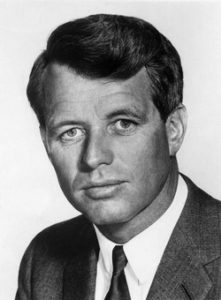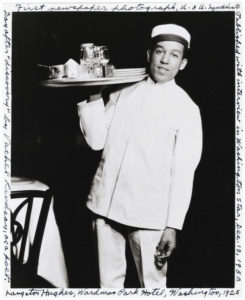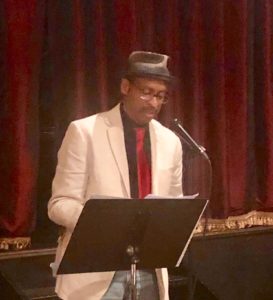by datdudejbal | Jun 14, 2018 | Uncategorized

June 6, 2018 marked the 50th anniversary of the death of Robert F. Kennedy. A service was held at Arlington National Cemetery in honor of his legacy. Aviva Kempner, who attended the memorial, noticed historical parallels mentioned at the service with topics in the Rosenwald documentary.
The event began with a musical prelude, “Life Every Voice and Sing,” written by James Weldon Johnson and often referred to as the “Black/African-American National Anthem” (and also served as inspiration for the sculptor Augusta Savage’s famous piece “The Harp”). Writer and poet James Weldon received several Rosenwald grants in the dates 1928, 1930, and 1931.
One of several notable speakers at the memorial as well as an interviewee in the Rosenwald film was Congressman John Lewis. Congressman Lewis read the words from one of Robert Kennedy’s speeches. In the film, Congressman Lewis spoke of his successes and positive work he’s done for the country, an inspirational achievement knowing his humble beginnings were in a Rosenwald school.
The memorial, filled with musical performances and meaningful testimonies by Kennedy’s daughter Kathleen Kennedy Townsend, community leaders, and other elected officials, was not only a beautiful tribute to Robert F. Kennedy, but also served as a celebration to inspire us to continue to persevere in the face of adversity and build a better world.
by datdudejbal | Jun 7, 2018 | Uncategorized

On June 5, 2018 at 6:00 pm, the bonus feature “Langston Hughes: He was a poet who embraced the people” from the documentary Rosenwald was screened at Bus Boys and Poets on 14th and V St in Washington, DC. This popular hangout for food and thought is named after a true story about how Hughes was discovered.
Local activist and poet E. Ethelbert Miller and director Aviva Kempner joined the screening. Director Aviva Kempner had the pleasure of introducing the clip on Langston Hughes, spoke of her work on making the Rosenwald film and what an honor it is to pay tribute to the original busboy himself!
After the screening, E. Ethelbert Miller spoke about the leading events that happened to Langston Hughes prior to his receiving of the Rosenwald grant in 1931. Much like today, Ethelbert noted, it was all about connections and contacts. Langston associated with many affiliates of the NAACP who recommend he receive a grant from the Rosenwald Fund.
Ethelbert read an excerpt that Langston Hughes wrote, recalling his fond memories as a busboy and working at the Wardman Park hotel in Washington D.C., how the experience lead to him meeting the famous writer and poet Vachel Lindsay and slipping him three of his poems that would later lead to his discovery as a poet. Hughes had read in the newspaper that Lindsay would be staying at the Wardman hotel, whic shows how being up on the news can be helpful.

Ethelbert enlightened us on the breadth of work Langston Hughes produced throughout his life including “…poems, novels, short stories, memoirs, children’s books, plays, translations, opera librettos, anthologies, newspaper columns. He was so prolific that, in a 1956 letter, he complained about “a book due yesterday that I haven’t even started (2008, Dwight Garner).” Also, unknown to many, Langston also worked as a translator as he was fluent in Spanish and French. His most notable translation of Cuban poet and activist Nicolás Guillén’s, poems, titled Cuba Libre.
Post screening Aviva advised audience members to visit the room where Langston Hughes stayed during his time in Washington DC at the 12th Street YMCA (now the Thurgood Marshall Center) which is still on display for people to see.
All in all, it was a special evening to celebrate in the venue that commemorates the humble beginnings of a never-ending influence on American literature and culture, the poet for the people; Langston Hughes.
Citation
“Dreams Deferred and Lived.” By Dwight Garner. The New York Times, The New York Times, 10 Jan. 2018, www.nytimes.com/2015/02/04/books/selected-letters-of-langston-hughes.html.




Recent Comments